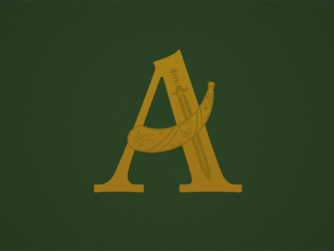It’s nap time in the Old Forest as our heroes gradually succumb to the power of an ancient and angry willow. Sam rolls a natural 20 to resist the spell and manages to save Frodo, but Merry and Pippin are trapped inside the enormous tree. Just when all seems hopeless, a merry old fellow comes hopping along with a unique fashion sense and some very delicate lilies. We remember J.R.R. Tolkien’s brother Hilary and speculate about Old Man Willow; we’ll also answer all your questions about the enigmatic figure in the blue jacket and yellow boots… just not today.
Thank you to Jordan Ellis Rannells for sponsoring this week’s episode! Visit his website www.learntolisten.net, contact him on Instagram @jrbassist or email him at JordanEllisRannells (at) Gmail (dot) com for more information.
For John Garth’s review of Hilary Tolkien’s Black and White Ogre Country, see his website here: “The Tolkien brothers in Bumble Dell”
Recommended Reading:
Tolkien, J. R. R. Tales from the Perilous Realm (Houghton Mifflin Harcourt, hardcover)
Carpenter, Humphrey. J.R.R. Tolkien: A Biography (Houghton Mifflin, paperback)
Carpenter, Humphrey, ed. The Letters of J.R.R. Tolkien (Mariner Books, paperback)



I never really heard the alliteration in the description of Tom until I listened to the audio book, and it really hit home when I listened to your recitation.
I know that no one wants to hear the theory that he’s Eru Iluvatar, but perhaps he’s a personification of Iluvatar, rather than Eru in all His power, Tom represents the divine on Arda. In letter 192, Tolkien states that Iluvatar does occasionally interfere directly in the world (Bilbo and Frodo were meant to find the Ring), and Tom does find Frodo and company by happenstance in the Old Forest and saves them from Old Man Willow.
I don’t think Tom is an Ainur, a Maiar, or even a personification or the earth, is because Morgoth put his power into the earth, imbuing it with his evil power, whereas Tom is not affected by the power of the Ring, and can dominate the malevolent powers in the Old Forest with a word. The Maiar are affected by the Ring, either by lust for it or fear of its power. The Ainur (except perhaps Ulmo) have withdrawn from the care of Arda, but Tom is not a water-being, although Goldberry is said to be. I think Tom’s everlastingness, power over a shrinking land, and even the fact that the Wise have forgotten him, is related to the fact that the “magic” of the Ainur and the Elves are leaving Middle Earth and will be replaced by Men, who have no magic and will have to make their own luck.
The Elves don’t know all, and express doubt over Bombadil’s true identity, but they do not doubt his nature.
Apologies for my run-on sentences. I get excited when I talk about LOTR.
No apologies necessary. There is a lot to unpack there, and we are collecting a lot of information of this nature as we prepare to discuss Tom in detail in a future episode. Thanks for the input, Casey, and stay tuned.
There is a lot to unpack there, and we are collecting a lot of information of this nature as we prepare to discuss Tom in detail in a future episode. Thanks for the input, Casey, and stay tuned.
I will say that I am pretty certain he’s not one of the Ainur either. One of the Ainur would have had a different reaction to the Ring (skipping ahead a chapter). But that’s all I’m at liberty to say right now.
Not even Aulë as Gene Hargrove argued so many years ago?
Not even Aulë. But I’ll be getting into why soon enough on the show, I promise!
But I’ll be getting into why soon enough on the show, I promise!
I had the pleasure to take two Tolkien classes with Dr. Verlyn Flieger at the U.of MD back in 1979. I remember her reading the passage of putting Old Man Willow to sleep “eat earth, drink water, go to sleep”. To which she added “Be a tree!”. This is consistent with other shamanistic themes in mythology that were also seen in the Kalavala. But in this case we see Bombadil as a teacher bringing natural chaos back into order; a teacher not a ruler, not in charge but charged with.
A teacher, not a ruler: I like that. It fits very well with the idea that he is “the master” but that he does not own the land.